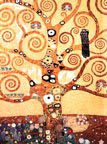
It feels like forever since I've blogged about a book. I could not get into anything. This book was no exception.
At age 37, Jill Bolte Taylor, Ph.D., a neuroanatomist and brain researcher, was stricken by a rare form of stroke. She was able to experience what it was like for one half of her brain to slowly shut down as it was deprived of oxygen. Because of her training as a brain scientist, she knew exactly what was happening as it was happening. Fascinating.
This book tells the story of what it was like for a very left-brained person to lose all of her left-brain functions (logical, linear -- all the things that put order to what you experience in the world), and to be left only with the flowy, watery, zen-like right brain. It also tells of her remarkable recovery, and what stroke victims need in order to recover.
I saw Dr. Taylor's presentation on YouTube or something like that, and then saw her speak on Oprah. I really loved what she had to say about how the stroke opened up a whole new world and way of being, and how she got to choose what left-brain functions she wanted to fully recover, and which she chose to stay dormant. I thought she had a very interesting story and her manner of presenting it was engaging and inspiring.
Because Terri's illness is affecting her CNS (central nervous system), we thought it might be good to read Dr. Taylor's thoughts on healing the brain.
It's a short book, and includes an informative section on how the left and right hemispheres of the brain work together. Dr. Taylor has done her best to put it all into easy layperson language. The actual story of the stroke was fascinating and I wanted to know more about that. I also found her recommendations for stroke victim care really useful and interesting.
However, her style of writing (perhaps as a result of the stroke?) is somewhat flat, and her attempts at humor also fell flat. I also wondered if some of her descriptions of what it was like having the stroke were influenced by what she remembered after she recovered parts of her left-brain mind. I felt there was too much thinking and reflecting going on while she was describing the stroke -- both faculties that she lost functioning of when the stroke happened. So I was confused by that.
I think it would have been much more effective (and more right-brain!) if the stroke section had been written as if it were happening right then, in stream-of-conscious style, first-person, rather than describing it as she did. What was it like to lose the chatter of the left brain? Suddenly, she could only feel or sense things, not "know" them. What was it like to not recognize numbers? I wanted to feel that for myself, not be told about it. You know?
Anyway. It was a short read (which took me forever) and I didn't find it very engaging. I finished it because I wanted to know her 'insights' but it certainly wasn't captivating. It was a case of a very interesting subject rendered "eh" by so-so writing. I know she's not a writer -- she's a scientist. But still. Maybe I'm just bitter that I'm done reading The Terror and I'm still not over the disappointment that there's no more story.
However, if you know anyone who has had a stroke, I would think this would be a really helpful book to read.








1 comment:
I was uber-depressed all of October and couldn't get into a book to save my life. It's so frustrating!!
Post a Comment